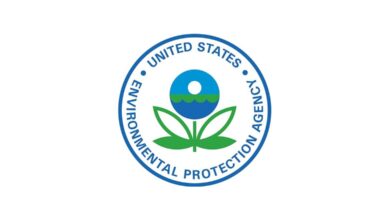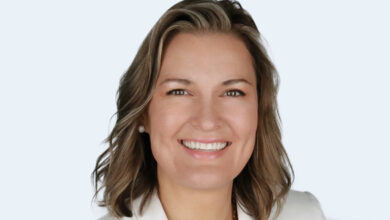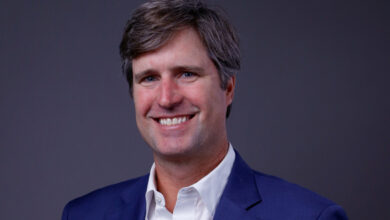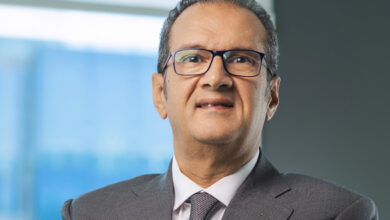2011 IADC chairman: Industry leaders must walk the walk on safety
By Linda Hsieh, managing editor
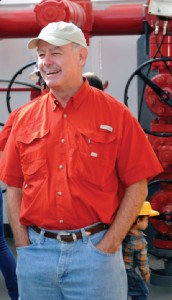
Life takes us to unexpected places. For Matt Ralls, it was a rather circuitous route – including a botched roustabout attempt when he was 18, a decision to major in nuclear engineering rather than petroleum engineering in college, and nearly two decades in the banking industry – that finally took him into the oil and gas business in 1990. Now, as president and CEO of Rowan Companies, Mr Ralls is leading one of the industry’s most respected companies with a long-standing reputation for operational excellence worldwide. Rowan currently operates a fleet of high-spec jackups on a global basis, with an ambition to expand into the floating deepwater segment.
Mr Ralls has also been elected IADC’s 2011 chairman, a position he intends to dedicate to safety and enhancing the industry’s safety culture. “Safety is not proprietary. I think the industry can do a much better job of sharing really good ideas about safety. We can all reinforce each other’s commitment to safety,” he said.
Another priority is working with IADC members and staff to continue to deal with Macondo’s aftermath. “Up until now it’s really been about keeping the government from overreacting and hurting our industry,” Mr Ralls said. “But now we’re starting to see details come out about what happened, and there will be an attempt to turn those findings into regulations. I think this is the year where a lot of heavy lifting is going to be done in terms of making sure that we get effective new regulation out of this and not overregulation.
He continued: “We need to make sure we have a seat at the table when it comes to turning the findings into practical application in daily operations… We are the industry representative for contract drilling, and that is exactly where the focus of the new safety regulations will fall. We need to make darn sure we’re in there and influencing the outcome.”
Early career
With a geologist father who was always going out to rigs to see logging results, Mr Ralls and his twin brother Mark have been around drilling rigs since they were young children. It was no surprise when they headed to Pauls Valley, Okla., to roustabout on a land rig the summer they turned 18.
“Unfortunately it was a very rainy summer and they were unable to move the rigs. They just couldn’t find any work for us,” Mr Ralls recalls. So the brothers had to go home without the rig experience they were looking for.
Ironically, it wasn’t until he joined the banking industry in 1973 that Mr Ralls really got to know the drilling industry through the finance side. He became a founding member of the energy department for a Houston bank just when banks were starting to set up energy lending departments in the mid- to late ’70s.
It turned out to be a great time for rig lending – for a few years at least. Then, everything crashed and burned in the ’80s downturn and the business turned brutal.
Due to the massive building boom in the late ’70s and early ’80s, substantial overcapacity of rigs had accumulated in an industry about to sink into a decades-long downturn. “I went to work for a bank that had made loans against new-construction land rigs, and there was just no work for them. We sold rigs that had never worked for less than 10 cents on the dollar,” he said.
It was a time of tough lessons, one of the most valuable of which was how volatile and cyclical this industry can be. “You have to plan your business around that cyclicality. As we say around here, you have to be able to stay in the game.”
From banking to E&P
In 1990, an acquisition of the bank Mr Ralls was working for prompted him to end his 17-year career in the banking industry and join Kelley Oil & Gas, an independent oil company, as its chief financial officer. The decision felt natural because of his familiarity with energy financing, and it turned out to be a career move he never looked back on.
Still, by any standard, 1990 was a lackluster year for the oil & gas industry. His time at Kelley Oil was one when the entire energy industry was trying to survive some of the toughest economics it had ever seen. “One month in 1992 I remember we sold natural gas for $1.05 per mcf. That’s how bad it got,” he recalled.
Mr Ralls’ first serious exposure to offshore drilling came in 1997, when he joined Global Marine as CFO. After about 15 years of hard times, things were starting to look up. “The industry was finally starting to see some pricing power. There was a lot of expansion going on. We were building a lot of equipment and doing some very interesting financings and lease structures,” he said.
He later moved to the operations side of the company – a shift that was made easier because of his engineering background. “I was probably an atypical finance person. I’ve always had a strong curiosity about how things work technically, how the equipment operated,” he said. Drilling rigs, equipment and technology “fascinated me.”
He added: “It was a very rewarding experience for me. Having been from the lending/credit side, I already had a profound appreciation for the capital intensity of the business. But until I got to Global Marine, I didn’t really appreciate the sophistication of the business, particularly on the technology side and with the management systems.”

Rowan – too good to pass up
When GlobalSantaFe merged with Transocean in 2007, Mr Ralls retired. As a man of many hobbies – skiing, sailing, hunting and golfing, to name a few – Mr Ralls felt he had enjoyed a fruitful and successful career, and was ready to kick back in the Texas Hill Country. “My wife and I moved to Austin and was in the process of unpacking when I got a call,” he said. When he heard about the opportunity – to succeed a retiring Danny McNease at Rowan – Mr Ralls knew it was too good to pass up. “I knew Rowan by reputation as having very good people and very good equipment. Nobody has the concentration of high-spec jackups that Rowan has.”
Since joining Rowan in January 2009, Mr Ralls has been leading the company in an expansion effort that had started under Mr McNease. Although the Middle East and North Sea continue to be strong growth areas for the company, it has also opened an office in Southeast Asia. “We have high hopes for penetrating that market,” Mr Ralls said.
The expansion strategy also included a sizable newbuilding program. By early 2012, Rowan will have constructed or acquired 11 newbuild jackups since 2008. This includes the three N-class jackups that came with the acquisition of Skeie Drilling in 2010, all three of which have contract commitments in place. “We’ve added almost a billion and a half dollars of contract backlog in 2010,” he said.
When asked whether the company will look at further jackup construction in the near future, Mr Ralls replied: “For now we’ll probably take a breather on newbuild jackup construction and focus on opportunities to expand Rowan’s fleet through rig acquisitions in the ultra-deepwater drilling or high-end jackup markets.” Over the long term, the company intends to move toward a balance between jackups and floating rigs. This also includes a move away from the land drilling and manufacturing segments of the business.
“But there’s no hurry to do that,” Mr Ralls said. In fact, utilization for the company’s fleet of high-spec land rigs has been “a real bright spot” in 2010, compared with the jackup side. “We had about 50% of the fleet stacked by mid-2009, but that business just roared back.”
Safety – for one, for all
Despite all the progress Rowan has made as far as newbuilds and international expansion, Mr Ralls stresses that safety is still the one issue he’s been looking at more than any other since his first day at the company. “It has to be constantly refreshed and constantly driven home that safety is in fact our highest priority. The fact is that safe operations are the most efficient operations; they’re not only our moral obligation but they actually have a positive operational impact as well.”
To achieve safe operations, management leadership must set the example at the top, Mr Ralls believes. He recalls the president of a bank he’d worked for early in his career who often said: Management gets what it inspects and not what it expects. “At the time I thought it was a pretty gross oversimplification. But some 30 years into my career, I’m convinced it’s just that simple. Employees look at what we pay attention to, and that’s what we get. If management is crystal clear and highly focused on what we think are the priorities for the company, the workforce in this industry can and will deliver it.”
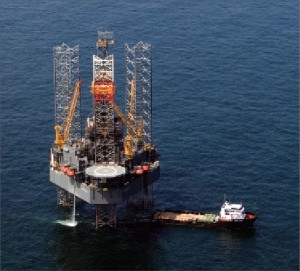
Macondo
The 2010 blowout and spill of the Macondo well served as a tragic reminder of the critical importance of having a strong safety culture. “What we need more than anything else is an increase in the leadership that we see from management of the contractors in terms of walking the walk with regards to safety. Everybody believes in it. Everybody endorses it. But whether they preach it day in and day out is another issue,” Mr Ralls said.
What industry doesn’t need is overreaction from regulators that will lead to overregulation: “I don’t view Macondo as symptomatic of a systemic flaw in the industry. To the contrary, I think the record for offshore drilling is pretty remarkable.”
Mr Ralls also believes that, just like in 2010, IADC will have a significant role to play in 2011 when it comes to managing industry’s response to regulation attempts. “It’s critically important that we all be aligned in our response and that we be cooperative with the regulators to reassure them that it’s our highest priority to ensure safe operations… There’s a lot of new information coming out about the event, and there will be a move to react to it from a regulatory or management standpoint. We can either do it as an industry or we can have it forced on us by regulators.”
Mr Ralls added: “I think that over time there’s going to be a concerted move outside of just the US to have a single safety oversight body that will set the standards for offshore safety rather than doing that country by country and company by company… Industrywide objectives and standards setting for what constitutes safe operations may actually turn out to be a positive for the industry.”
In the near term, there’s no doubt that Macondo has changed the game – especially when it comes to the painful snail’s pace of permit approvals. In the long term, however, Mr Ralls is optimistic that the national political and regulatory pendulum will swing back toward the middle. He also doesn’t expect new regulations to significantly increase drilling contractors’ operating costs or for Macondo to hugely impact operations outside the US Gulf. “Long term, this is still a very healthy industry.”
Finally, the people problem
The oft-discussed human resources challenge can’t be overlooked either. Fortunately, virtually every company in the industry now has employee development programs, and they are doing more training than ever before. “But the fact is we’re going to have to do more. We need to be constantly improving the training programs – what we’re teaching, how we’re teaching, how often we’re teaching,” Mr Ralls said. “It’s an area where you’ll see an increasing commitment by the industry.”
He also encourages employees to take a more active role in their career development. “They need to seek out opportunities as opposed to just waiting for someone to identify them as someone needing development. This industry is a fertile ground for people who have good ethics, are willing to work hard and take an active role in the development of their own career paths.”
Ironically, although Mr Ralls himself was talked out of pursuing a petroleum engineering degree in college because nuclear engineering appeared to be “the way of the future,” his experiences over the past 30 years have convinced him that the oil and gas business will be a critical industry worldwide for decades to come. “Maybe there’s something out there that will change the game someday, but it’s not going to be anytime soon. Our dependence on drilling and fossil fuels is not diminishing but expanding. My grandchildren could still have a very good career in the contract drilling business.”
Mr Ralls and his wife, Amy, live in Austin, Texas. They have four grown children and six grandchildren.

